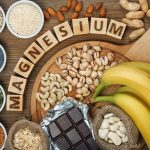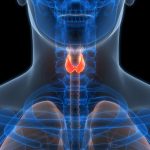
Ginseng, notably the most well-known adaptogenic and commercially used medicinal herb, began its climb to wellness star in Asia as a supplement to boost Qi, or life energy. Traditionally, ginseng served to strengthen the mind/body, restore adrenal health, improve stamina and cognitive function, boost immunity and induce an overall sense of wellbeing. Many individuals today consume ginseng in one form or another, based largely on anecdotal evidence of its antioxidant, anti-inflammatory, anti-fatigue and anti-ageing properties. Read on to discover if ginseng could help unlock hidden wellness potential in your own life.
A Variety of Root Options
Many varieties of ginseng root exist all around the globe, each with its own cache of benefits. Siberian, Chinese/Korean and American ginseng varietals seem to top the list of the most widely-used forms of the root. The Chinese/Korean ginseng offers the highest stimulation upon ingestion, followed by American ginseng, with Siberian ginseng providing the mildest effects.
While ginsengs and their purported benefits have not undergone serious scrutiny in the scientific research arena, we cannot ignore the anecdotal evidence that the Eastern world has observed over the centuries. Many sources of literature claim that ginseng and its derivatives may help with the following:
- Building immunity
- Regulating blood sugar
- Improving focus
- Reducing inflammation
Ginseng and Athletics
Several research protocols have undertaken the study of whether ginseng can serve, in any capacity, as a protective element in the body’s physiological response to exercise. Intense or even moderate exercise can elicit an increase in cellular biomarkers which signal damage to skeletal muscle, mainly pro-inflammatory biomarkers. The different types of ginseng roots all contain substances known as ginsenosides, active ingredients that act on the central nervous system. Ginsenosides carry with them both antioxidant and anti-inflammatory properties, as well as fostering effects on cortisol modulation.
Performance Enhancement?
Fitness professionals and scientists alike often ponder whether the use of ginseng by serious athletes may enhance sport performance. Various studies undertaken using varieties of ginseng root types have in fact yielded mixed results, especially when testing Siberian ginseng. Controlled studies using several of the Asian ginseng roots found some improvements in exercise performance; however, the data yielded positive results only under very limited conditions: use of standardized root extracts, study duration lasting more than 8 weeks, consuming a dosage of 1 gram of dried root each day, and working with a significantly large number of subjects whose ages categorized them as “older adults”. Improvements in muscular strength, maximal oxygen uptake, work capacity, serum lactate, heart rate, visual and auditory reaction times, alertness, and psychomotor skills stood out as the most profound.
Muscle Regeneration
Muscle regeneration after exercise plays a key role role in an athlete’s ability to sustain continual loads, an important aspect during long workout sessions. As we mentioned above, the use of ginseng may foster improvements to the muscle damage brought on by exercise; might ginseng likewise help with regeneration, making it more efficient for the body? Four separate research studies posed this hypothesis and they all determined an affirmative conclusion. In two of the studies, scientists observed a direct link between a decrease in muscle damage and improved muscle regeneration. By analyzing muscle biopsies, researchers could observe how the intake of ginseng improved the replacement of satellite cells after exercise, when compared to athletes in the control group who did not receive supplemental ginseng. Satellite cells, like the aforementioned biomarkers, directly relate to the body’s muscle regeneration. Several studies have indicated that muscular adaptation to resistance and endurance activity may actually occur even in the absence of satellite cells; but ultimately the body requires satellite cell participation to realize its complete muscular adaptive potential. Once again, we can begin to understand and appreciate the far-reaching effects of ginseng supplementation, even at the cellular level.
Ginseng, Lactate and Muscle Fatigue
In addition to sustained ginseng supplementation mitigating the response of the biological markers, which in turn attenuate exercise-induced muscle damage and inflammation, it appears as if the ginseng root may likewise reduce the appearance of lactate in the bloodstream. The body produces lactate when intense exercise and overexertion lead to a lack of sufficient oxygen. This in turn hinders the muscles’ ability to contract, the main cause of muscle fatigue.
By reducing muscle fatigue, ginseng continues to benefit the body by dampening the risk of injury, to the muscles or ligaments in particular. This can ultimately improve athletic performance.
Borja Muñoz, a fitness coach and lead research study contributor, endorses the use of ginseng. “Although recovery times vary based on the nature of the injury and between individuals, the damaged structures share the same physiological processes. That’s why professionals in this field must obtain the most efficient physiological context, to ensure that each person can recover as well and as quickly as possible. This is where ginseng comes in, as it can play a significant role in recovering from injuries.”
Final Thoughts
In the future, we hope today’s research can help pave the way for more in-depth study of the benefits of ginseng. Whether for anti-inflammatory purposes, sports performance, muscle regeneration or muscle renewal, taking advantage of all that nutritional ginseng supplementation has to offer can only help enhance an athlete’s life and foster greater well-being.
References:
https://pmc.ncbi.nlm.nih.gov/articles/PMC3100154/
https://journals.humankinetics.com/view/journals/ijsnem/19/3/article-p298.xml
https://pubmed.ncbi.nlm.nih.gov/10919969/
https://pubmed.ncbi.nlm.nih.gov/34480776/
https://pmc.ncbi.nlm.nih.gov/articles/PMC10780807/
https://pubmed.ncbi.nlm.nih.gov/28981384/
https://pubmed.ncbi.nlm.nih.gov/33507202/
https://www.webmd.com/diet/supplement-guide-ginseng






